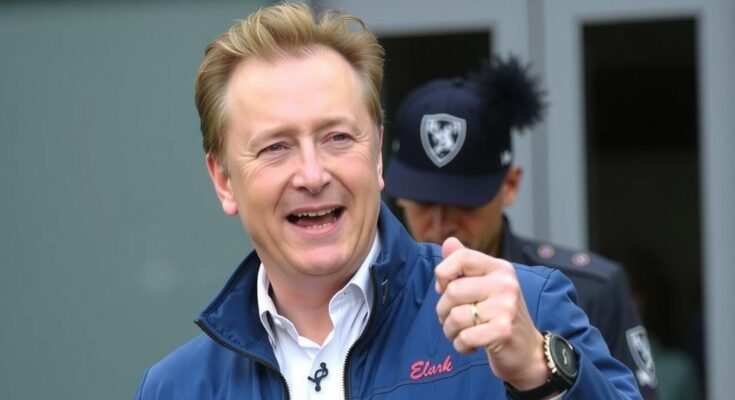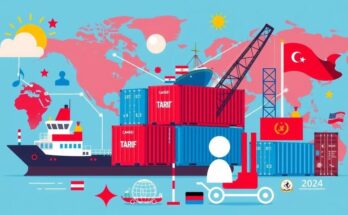Elon Musk endorsed Germany’s far-right AfD ahead of elections on February 23, asserting they could “save Germany.” His comments drew significant criticism from German lawmakers, with concerns about foreign interference in domestic politics growing. The AfD’s potential rise is notable, yet mainstream parties are firmly against coalition-building with them.
Elon Musk, the renowned billionaire and CEO, publicly endorsed the far-right Alternative for Germany (AfD) party ahead of the impending elections set for February 23. His statements come on the backdrop of the recent collapse of Chancellor Olaf Scholz’s centre-left coalition. Polls suggest that the AfD is in a strong position, potentially disrupting the traditional centre-right and centre-left political landscape in Germany. However, major political parties have declared their refusal to ally with the AfD, emphasizing a commitment to democratic principles.
Musk asserted via social media that “Only the AfD can save Germany,” reflecting his support for far-right movements throughout Europe. This endorsement has drawn strong reactions from various German lawmakers across the political spectrum, who consider his involvement in domestic politics as an interference. Scholz defended the notion of free speech, while officials from mainstream parties expressed discontent with Musk’s influential role as a global business figure impacting German elections.
Germany is preparing for elections following the dissolution of Chancellor Olaf Scholz’s centre-left government, a scenario that presents an opportunity for the far-right AfD to gain more influence. Musk’s comments have reignited debates about external influences in democratic elections, particularly from prominent figures in the United States. The AfD, known for its anti-immigration stance, has been gaining traction in recent polls, yet mainstream parties are united against forming any governmental alliance with them, fearing the rise of extremist politics.
The endorsement of the AfD by Elon Musk has incited considerable backlash from German politicians, who view his comments as an unacceptable intrusion into their electoral process. While the AfD may position themselves strongly in the polls, the overarching sentiment from established parties remains one of resistance against forming coalitions with them. The unfolding political landscape in Germany continues to illustrate the complexities of external influences on national elections.
Original Source: www.aljazeera.com




